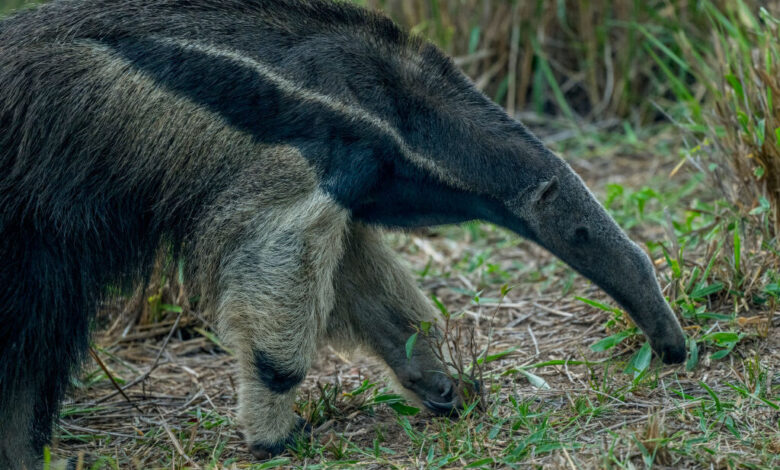
▼ Summary
– Mammals have independently evolved to eat only ants and termites at least 12 times over the past 66 million years, a phenomenon known as convergent evolution.
– These myrmecophages, such as anteaters and pangolins, share specialized traits like tooth loss and long sticky tongues to consume vast numbers of insects daily.
– The study’s findings challenge previous assumptions by revealing how common and widespread this extreme dietary specialization is among mammals.
– Researchers identified obligate myrmecophages by analyzing extensive data from natural history papers, zoological texts, and conservation reports covering 4,099 living mammal species.
– The team used statistical models to reconstruct ancestral diets by categorizing species into dietary groups based on gut analyses and field observations.
The remarkable evolutionary journey of mammals that exclusively consume ants and termites represents one of nature’s most fascinating examples of dietary specialization. Over millions of years, numerous species have independently adopted this unusual diet, developing strikingly similar physical and behavioral adaptations in the process. From the iconic anteater to the lesser-known numbat, these creatures demonstrate how environmental pressures and prey availability can drive profound biological change.
A groundbreaking study now confirms that this extreme feeding strategy, known as obligate myrmecophagy, has evolved not just once or twice, but on at least twelve separate occasions over the past 66 million years. This repeated pattern highlights the powerful role of convergent evolution, where unrelated species develop comparable traits in response to similar ecological challenges. The expansion of ant and termite colonies throughout the Cenozoic era appears to have provided a consistent and abundant food source, encouraging multiple mammalian lineages to specialize in consuming these social insects.
Researchers were surprised by both the frequency and timing of these dietary shifts. As lead author Thomas Vida noted, the origins of myrmecophagy closely mirror the historical growth in ant and termite colony sizes, suggesting a direct evolutionary relationship. This correlation underscores how insect societies have indirectly shaped the anatomy and behavior of mammalian predators across continents and epochs.
To trace the evolutionary history of ant-eating mammals, the scientific team undertook a comprehensive review of biological literature spanning nearly a century. They analyzed dietary records, gut content studies, and field observations for over 4,000 living mammal species, classifying each into one of five dietary categories. This meticulous categorization allowed the researchers to identify true dietary specialists, species relying almost entirely on ants and termites for survival.
Using advanced statistical modeling, the team reconstructed the most probable dietary patterns for ancestral species, mapping how and when myrmecophagy emerged across different mammalian families. This approach revealed not only the repeated evolution of ant-eating but also the consistent suite of adaptations that accompany this lifestyle: tooth reduction, elongated snouts, powerful claws for breaking into nests, and extraordinarily long, sticky tongues capable of harvesting thousands of insects in a single day.
The study illuminates a broader narrative of evolutionary innovation, showing how a seemingly restrictive diet can become a successful survival strategy when supported by the right ecological conditions. It also emphasizes the importance of historical context in understanding modern biodiversity, revealing how ancient interactions between insects and mammals continue to influence ecosystems today.
(Source: Ars Technica)
